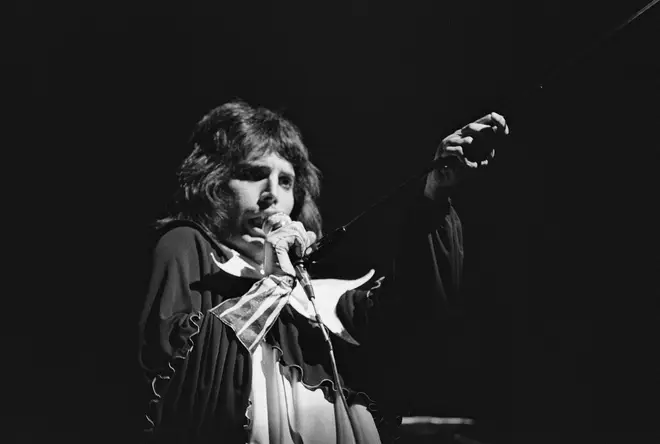Musical history isn’t a linear process, though it’s easy to think of it that way, imagining subcultures and cultural moments arriving one after another in a neat, orderly fashion. In reality, at any given time, multiple movements and tribes were thriving, each with its own distinct energy, often clashing with the spirit of its contemporaries. In the mid-1970s, this dynamic was especially clear as the raw, gritty punk scene coexisted with the polished, theatrical world of acts like Queen—two seemingly opposing forces sharing the same moment in time.
They stand at two ends of the spectrum. In one camp, there was Johnny Rotten and his gaggle, who looked like they needed long baths and a good meal. Their scene was powered by a DIY spirit where skill, and sometimes even talent, came second to attitude. With the attitude of the moment being total nonchalance, power in the punk scene came down to a competition of who cared the least, as if the effort was a sign of weakness.That would never be said of artists like Freddie Mercury, Elton John, David Bowie or even leading alternative rock acts like Pink Floyd. On the other end of the spectrum, in the world of rock and pop, the names breaking into the mainstream were marked by clear and vibrant effort. They were putting on big shows, using elaborate costumes or lights, writing big bold songs with real theatrical flair.
Especially when it comes to Queen, no one could hear a track like ‘Bohemian Rhapsody’ and claim that the band weren’t giving it their all. While the punk scene was all about being at the whim of whatever bad mood they were in on a given day, Queen was crafting big tracks designed to bottle big emotions. They did nothing by halves, while the punks of the time would have been embarrassed to give it even a quarter.That’s what Mercury could never get on with. In his mind, the job of a musician was to entertain and to work at that. It was a role he took on gratefully and with real effort as he said of his crowds, “I have to win them over, or it’s not a successful gig”. Unlike the stories of punk troupes berating their crowd as if the audience is there to serve them, Mercury sees himself as being at the mercy of the fans, with his task on stage being to make them happy, not fight them. “It’s my job to make sure I win them over and make them feel they’ve had a good time. That’s part of my role, part of the duty that I have to do,” he said,
But really, it all comes down to his perception on the world of music as a whole, and his life long dreams as a singer. For someone like Mercury who always wanted to be a star, there is no point denying that and no point not trying your best to make it happen. What he saw in the punk scene was the opposite of that, as the faces of the subculture all seemed to deny their desire for greatness.
“I think everybody wants to be successful. I don’t care what they say. I know there was a fashion with the punk movement or whatever,” he said. “They said, ‘Oh, we want to play to the small audiences because we’re being intimate’ and all that,” he continued before spitting in judgment; “Load of rubbish!”
For Mercury, it’s a case of working. He was working for what he wanted and then working each night to win over crowds in order to achieve that, climbing the ladder to the top of the back of his effort. That kind of work ethic was never going to come from a band that proudly sang, “I’m a lazy sod.”
